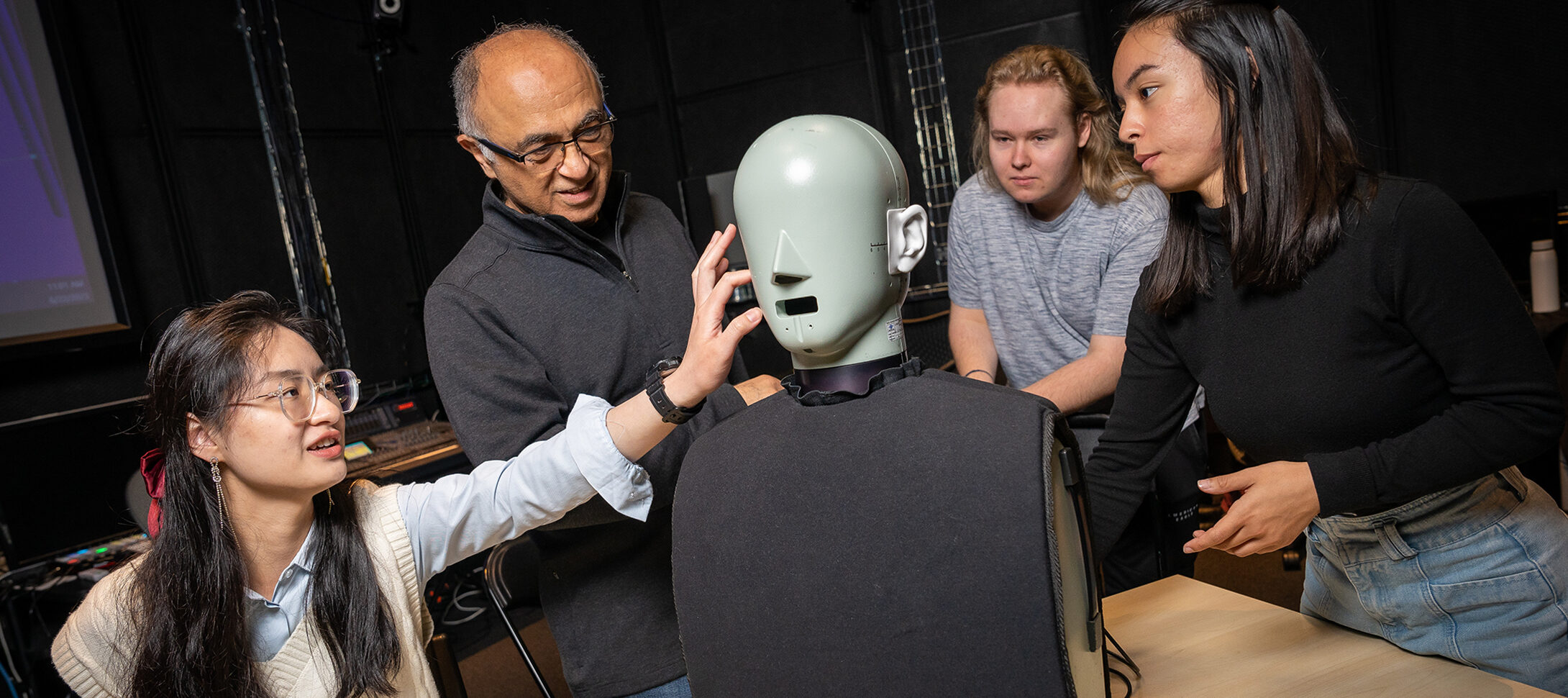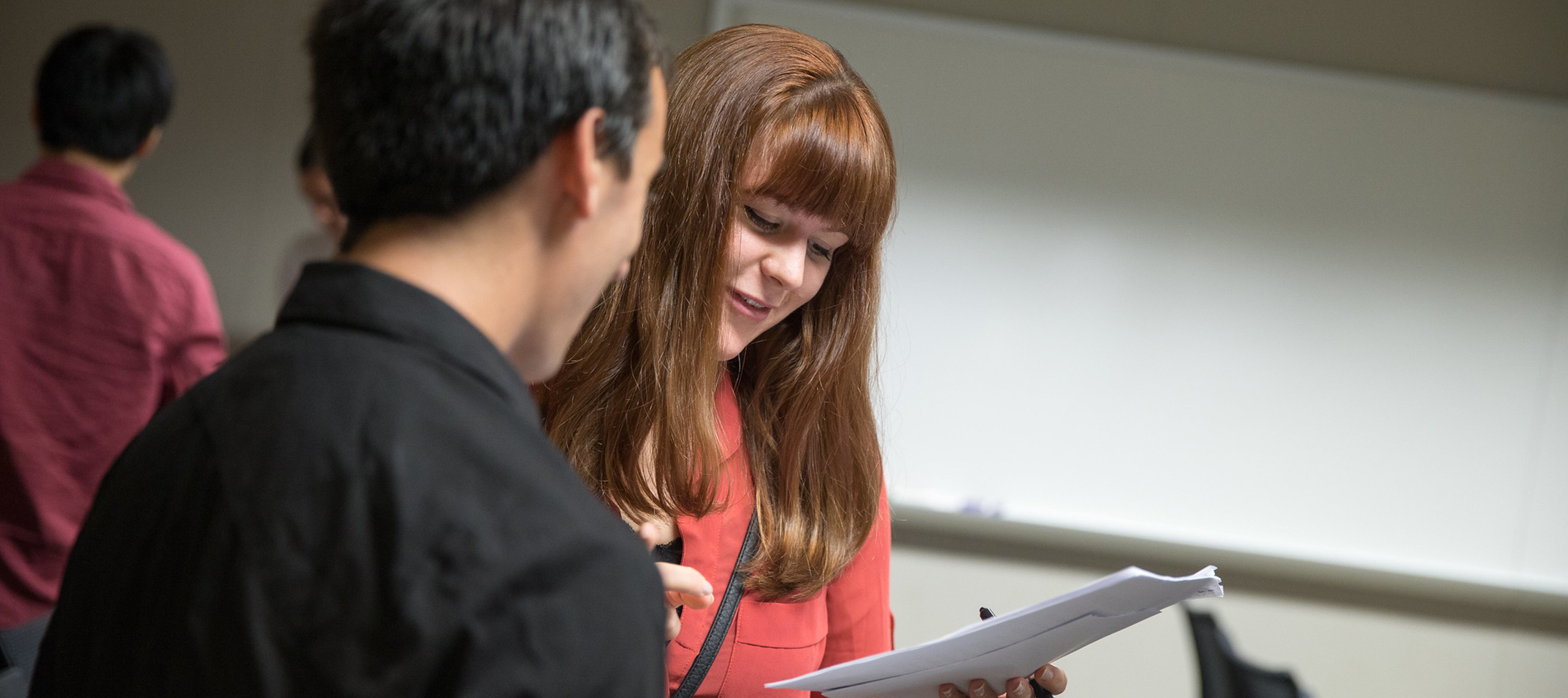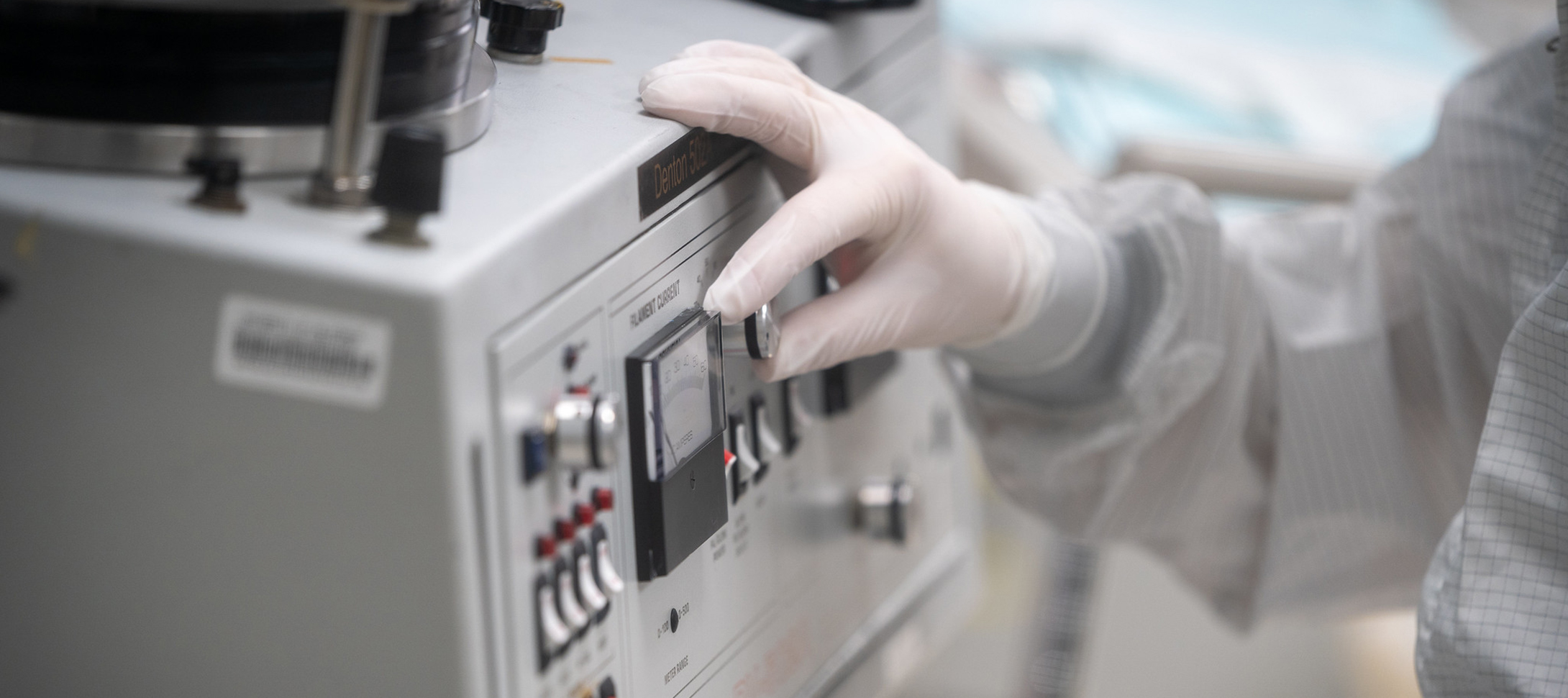QI offers UC San Diego students a variety of opportunities to hone their technical and research skills in a hands-on setting, with the guidance of involved mentors.

Workforce Development
Thanks to support from the State of California, UC San Diego students can participate in a program that helps prepare participants with the skills needed in the state’s rapidly growing high-tech sector.
-
Nanotechnology. UC San Diego interns work for a year at QI’s Nano3 cleanroom facility, learning and operating Nano3’s state-of-the-art scanning electron microscope, under the direction of QI Senior Staff Digital Design Engineer Jeff Wu.
-
mHealth. This internship, directed by Principal Engineer Ganz Chockalingam, offers UC San Diego undergraduates with a technical background the opportunity to focus on various aspects in the design, development and commercialization of applications in healthcare.
-
Quantum. Under the direction of Research Scientist Nikola Alic, UC San Diego students collaborate in the research and development of innovative graduate programs in quantum computing.
-
Sonic Arts. Under the direction of QI Associate Director and Professor Shahrokh Yadegari, UC San Diego undergraduates explore, design and implement cutting-edge audio technologies.
-
Connecting Technology with Use Cases. In this internship with Professor Ramamohan Paturi, UC San Diego students explore the practical applications of new technology.
- Neurodiversity in Tech. This summer internship program, directed by Professor Pamela Cosman and open to UC San Diego students, helps prepare young adults with autism spectrum disorder for careers in technology.

Academic Internship Program
Undergraduates can join QI though UC San Diego’s Academic Internship Program (AIP) to learn practical skills under the guidance of a mentor while earning academic credit. Student projects have spanned wildfire science, archaeology, wireless technology, community networking and virtual/augmented reality. For more information, please visit UC San Diego AIP.
About 10 students per year are currently able to pursue an AIP focused on nanotechnology. Interns typically spend about 10 hours a week over an academic year becoming proficient in the operation of advanced nanotechnology equipment in the QI’s state-of-the-art cleanroom. In addition to this hands-on training, QI brings together students and representatives from nanotechnology-related industries in seminars and job fairs; many interns have accepted jobs at these companies upon graduation. For more information on how to apply to the nanotechnology AIP, please contact Yves Theriault at ytheriault@ucsd.edu.
“Some Academic Internship Program classes first offered at QI were so successful they are being adapted to fulfill Seventh College course requirements.”

Research Experience for Undergraduates in Nanotechnhology
In this 10-week summer research experience supported by a grant from the National Science Foundation to the San Diego Nanotechnology Infrastructure, undergraduates gain nanotechnology research experience and professional skills. Each participant is assigned to a faculty mentor and works to advance that lab’s work in fields such as nano-materials, nano-biomedicine, nano-photonics, and nano-magnetics. At the end of the program, participants have the opportunity to present their research projects at the National Nanotechnology Coordinated Infrastructure Annual REU convocation, as well as the UC San Diego Summer Conference.
Participants receive a stipend, on-campus housing, and travel expense reimbursement. Applications open in November. Learn More

Engineers for Exploration
In the summer research program Engineers for Exploration, graduates and undergraduates engage in multidisciplinary and collaborative research projects, while protecting the environment, shedding light on scientific mysteries, and gaining hands-on experience. The program teams student engineers with scientists in fields from ecology to oceanography and archaeology. Students create new technologies—embedded systems and software, machine learning, electronic integration, mechanical design, system building—to aid these scientists in their work, then accompany them on field deployments around the world. Learn More